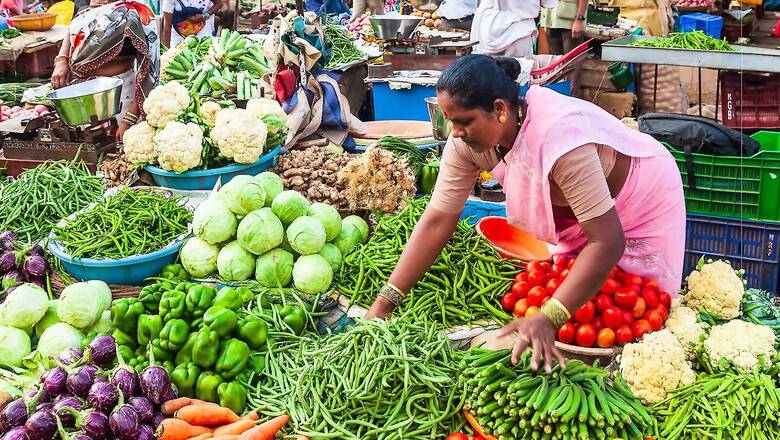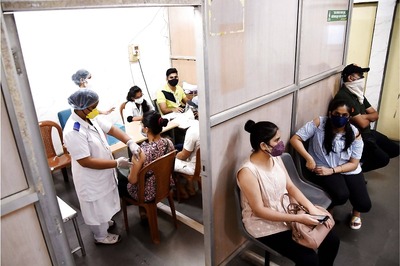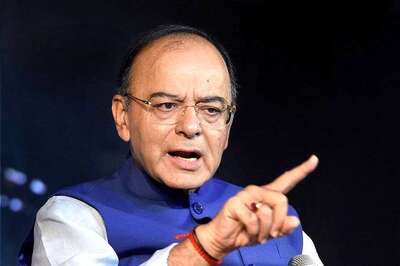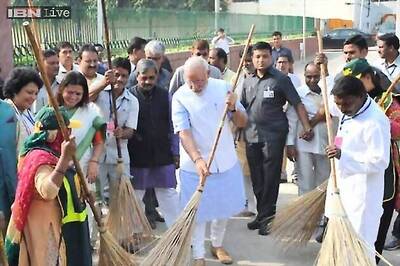
views
Even as the retail inflation in August stood at a five-year high of 7.41 per cent on high food inflation, the food ministry’s high-level panel will likely meet next week to determine further steps to ease prices of essential commodities. It could include listing further restrictions on exports, a drive against hoarding, and the release of buffer stock as possible interventions, according to an HT report, citing a person aware of the development.
India’s retail inflation accelerated to 7.41 per cent in September, compared with 7 per cent in the previous month. September registered a five-month-high level amid a surge in food prices. Meanwhile, the Index of Industrial Production (IIP) witnessed a fall of 0.8 per cent in August as compared with a growth of 2.4 per cent in July.
Inflation in rural areas in September 2022 rose to 7.56 per cent, while that in urban areas accelerated to 7.27 per cent. In September 2021, the retail inflation had stood at 4.35 per cent. Inflation in the food basket rose to 8.60 per cent in September this year, compared with 7.62 per cent in August.
It is the ninth month that the Consumer Price Index (CPI)-based inflation has remained above the RBI’s upper tolerance limit of 6 per cent, and has risen despite the central bank’s efforts to curb it.
“The government is closely monitoring the price situation of all major commodities in the wake of geopolitical scenarios, including extreme weather conditions around the globe,” according to the HT report quoting the person cited above.
A panel led by the Union department of food and public distribution will “review prices of all major commodities and ensure appropriate timely measures are taken to keep a check on the prices in view of the interest of the farmers, industry and common consumers”, the person said, according to HT.
To control prices, the government last month imposed a ban on the exports of all forms of broken rice. The ban will halt the overseas shipment of around 4 million tonnes (MT) of rice.
“Export Policy of broken rice under HS code 1006 40 00 is amended from ‘Free’ to ‘Prohibited’. The Notification will come into effect from 9th of September, 2022. The provisions as under Para 1.05 of the Foreign Trade Policy 2015-2020 regarding transitional arrangement shall not be applicable under this Notification,” according to a notification by the Directorate General Foreign Trade (DGFT) released on Thursday (September 8). The DGFT is a commerce ministry arm that deals with export- and import-related matters.
Before this, the Cabinet Committee on Economic Affairs, chaired by Prime Minister Narendra Modi, also approved the proposal to amend the policy of exemption for wheat or meslin flour. The move will now allow putting restrictions on the export of wheat flour, which will ensure a curb on rising prices of wheat flour in the country.
Read all the Latest Business News and Breaking News here




















Comments
0 comment